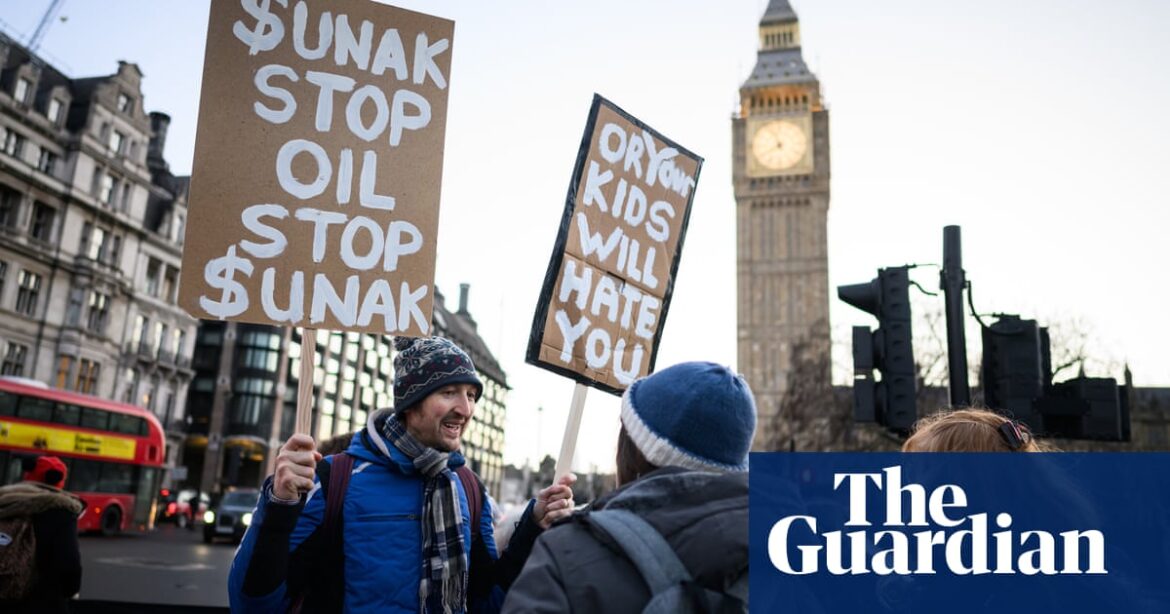
A company that deals with oil and gas and is owned by a prominent supporter of the UK Conservative party has recently received a permit from the government to extract fossil fuels, despite previous penalties for unauthorized burning.
This week, the government approved drilling for fossil fuels in 24 new areas in the North Sea. EnQuest Heather, a subsidiary of EnQuest, was granted one of the licences.
Activists have condemned government officials for incentivizing actions that are harmful to the environment, citing the fact that EnQuest was penalized £150,000 in 2022 by the North Sea Transition Authority (NSTA) for releasing 262 tonnes of gas through flaring on the Magnus field between November 30 and December 1, 2021. This was done despite being aware that proper authorization was not obtained.
The activists also highlight that the EnQuest CEO, Amjad Bseisu, has contributed a total of £480,721.40 to the Conservative party in both monetary and non-monetary donations since 2013.
The latest batch of North Sea licenses has caused controversy. The government’s reasoning for increasing oil production in the area is to enhance energy security and decrease dependence on imported oil from unfriendly countries like Russia. They claim it is a practical way to transition to a net zero future. On the other hand, the North Sea Transition Authority believes that these licenses will safeguard employment and have positive economic impacts on both local and national levels.
“The round is an integral component of the North Sea Transition Authority’s (NSTA) effort to aid the oil and gas sector, which currently supplies approximately 75% of domestic energy requirements and is projected to remain a significant contributor even as demand decreases.”
The Climate Change Committee and energy experts have cautioned against issuing new oil and gas licenses in order to prevent a climate crisis. The Labour party has promised to refrain from granting any new oil and gas licenses if they are in control.
Flaring is a contentious practice because it involves the combustion of surplus fossil fuels, which results in unnecessary pollution. It is a cost-effective way to get rid of the byproduct gas from oil extraction and is prohibited in countries like Norway, but can be permitted under certain conditions in the UK.
Emma Dearnaley, legal director of The Good Law Project, expressed concern over the government’s decision to support a lavish North Sea oil and gas project that benefits only a small group of wealthy individuals and corporations. This choice to prioritize profits over investing in more affordable and eco-friendly energy options will have a significant impact on our environment and economy. Dearnaley questions whether ministers believe this is a worthwhile sacrifice just to appease their party’s donors.
Philip Evans, senior climate campaigner for Greenpeace UK, expressed concern that the Tory party may have a hidden agenda in granting new oil and gas licences. This will only worsen the climate crisis, causing harm to people and their means of living globally, and will not decrease energy costs or improve the UK’s energy security. It is possible that the government does not have the public’s best interests in mind. Furthermore, the companies receiving these licences have a history of irresponsible and environmentally damaging practices, such as violating flaring regulations, while also supporting the Conservative government financially. Naturally, there are doubts and suspicions about this situation.
There are alternative approaches for managing surplus natural gas, such as capturing it to prevent unnecessary burning and pollution of the atmosphere.
Ignore the email advertising the newsletter.
after newsletter promotion
Bob Ward, the director of policy and communications at the Grantham Research Institute on Climate Change and the Environment at the London School of Economics and Political Science, stated that companies like EnQuest who have received new exploration licenses are making a risky bet that the world will not effectively address climate change and that the demand for fossil fuels will remain high.
“Successful global climate policy would mean demand will fall and the international market prices for oil and gas will drop. The relatively high operating costs in the North Sea mean that oil and gas production is unprofitable when market prices are low.
This is the reason why these companies rely on British customers to pay expensive rates for oil and gas, and why they choose to release and burn off natural gas instead of investing in the necessary infrastructure to capture it. It is a reflection of the industry’s economics, which is overflowing with profits from customers and struggles to let go of inefficient, wasteful, and harmful methods.
EnQuest and the Department for Energy Security and Net Zero have been reached out to for a response.
Source: theguardian.com



